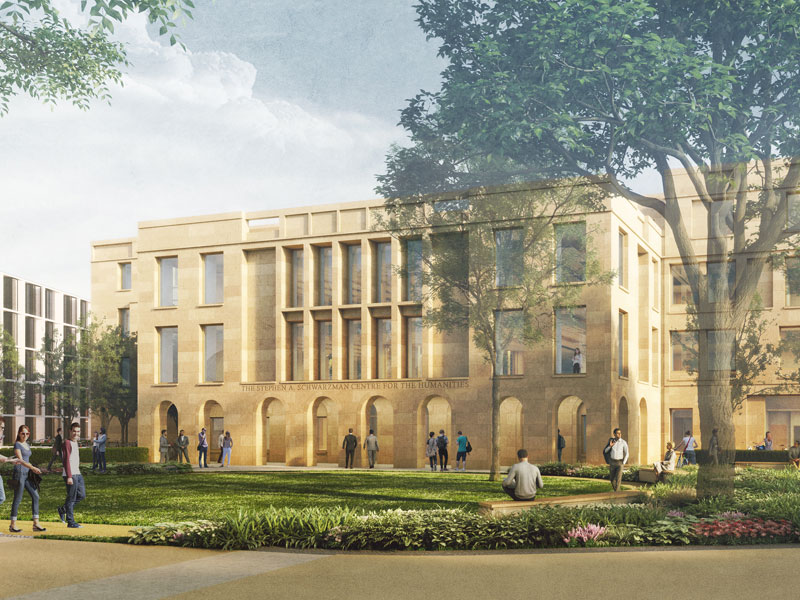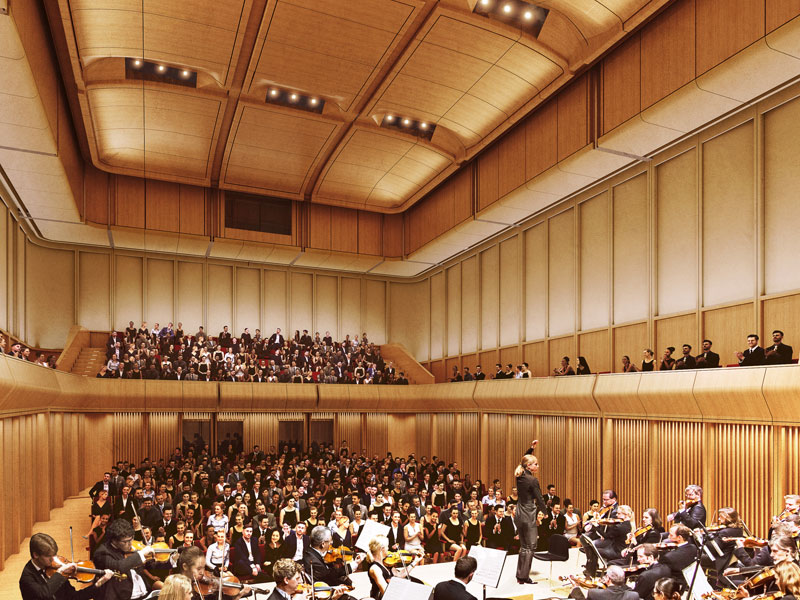The University of Oxford has received an additional £25 million gift from Stephen A. Schwarzman towards the Stephen A. Schwarzman Centre for the Humanities, raising his total support for the project to £175 million.
The gift has been announced in tandem with the news that the University’s application to build the centre on the Radcliffe Observatory Quarter site has been approved by Oxford City Council. The unanimous decision was made at a planning meeting on Tuesday 8 March and paves the way for construction to begin on the centre later this year, ahead of its opening in 2025.

The Stephen A. Schwarzman Centre for the Humanities will boost teaching and research in the humanities at Oxford, providing a state-of-the-art home for seven faculties, the Institute for Ethics in AI, the Oxford Internet Institute and a new library. It will also house a full suite of high-quality exhibition and performance spaces, allowing public audiences to engage more deeply with the University. The centre will be a model for the essential role of the humanities in helping the world to confront some of the most pressing questions and challenges it faces today.
‘A fabulous addition to the city and University’
The new centre was announced in 2019 following a £150 million foundational gift from Mr Schwarzman, Chairman, CEO and co-founder of Blackstone, one of the world's leading investment firms. His latest gift of £25 million supports the University to realise its ambition to build a state-of-the-art and environmentally sustainable building that delivers outstanding academic and public-facing activity.
Professor Louise Richardson, Vice-Chancellor of the University of Oxford, said: ‘I am absolutely delighted that Oxford City Council has approved our application to build the Stephen A. Schwarzman Centre for the Humanities. This building will be a fabulous addition both to the cultural life of the city and to the intellectual and social life of the University, now and for generations to come. I would also like to take this opportunity to express my gratitude to Mr Schwarzman for his exceptionally generous additional gift of £25 million, which will enable us to realise the vision we presented to the council.’
Stephen A. Schwarzman said: ‘I am pleased to support the University with this additional gift and look forward to seeing the impact the centre will have on Oxford students, faculty, community members and the world for years to come. Oxford has a unique opportunity to share and apply its leadership in the humanities to the most fundamental questions of the 21st century and I’m proud of the role the centre will play in this mission.’
Although construction on the building has yet to begin, the centre is already a hub of activity. The Institute for Ethics in AI has grown to a core team of eight academics and four doctoral students who are focused on producing new research and thinking around the ethical questions posed by artificial intelligence. Meanwhile, the Humanities Cultural Programme has put on dozens of public-facing, research-based events to global audiences of tens of thousands. Both will continue to expand and develop before moving into the centre in 2025.

Ambitious sustainability objectives
The University has ambitious sustainability objectives for the design, construction and operation of the centre. It will be a highly energy efficient building designed according to Passivhaus principles – very unusual for a building of this size.
William Whyte, Professor of Architectural History at the University of Oxford, said: ‘It is thanks to the hundreds of conversations with scores of people across the city over the last two years that we’ve been able to create such an inspirational design for a building which will be a pioneering example of sustainability in architecture.’
A website with more information on construction progress will launch in the coming months, and more information about the wider project can be found here.